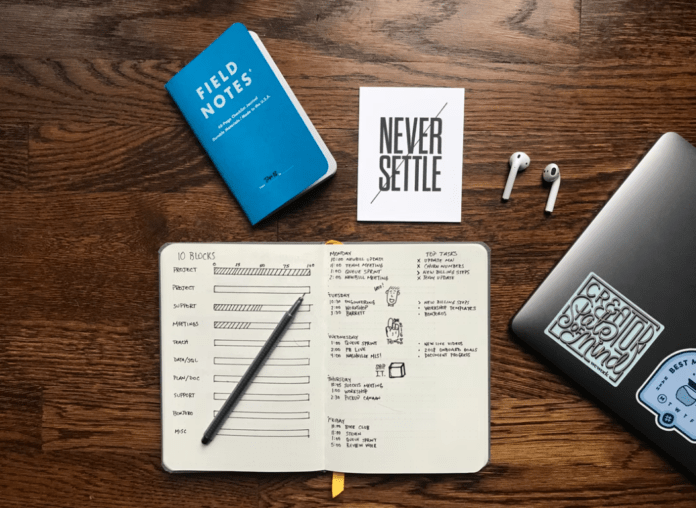It might not sound logical, but you will get more done if you take breaks more often. We aren’t designed to sit for multiple hours in the same position. While things like deep thinking and hyper-focus can be incredible for working long hours, in general, breaks are what you should be aiming for.
The longer you are working on something, the harder your brain has to focus on the task, and while this can be beneficial – in most circumstances taking a short break can increase your productivity.
Although we will focus on the productive benefits of taking breaks, if you are at the computer typing a lot, you are at risk of RSI and carpal tunnel. Taking regular intervals for your hands and using kt tape wrist carpal tunnel support tape can improve any stiffness in your hands.
Stress
Even as you are working, you can begin to feel stressed out. Over time if this isn’t managed, the stress will keep piling up. Taking a moment away from your computer or the work you are currently tackling can give you a few moments to relax and reduce the tension you are feeling.
You should plan to take a few breaks through the day and longer ones – like a few days, every few months.
Focus
If you subscribe to deep thought, you will probably be working your way up to around 4 hours of solid hyper-focus times. This takes great practice and time to achieve – but can be worth it.
However, most people need to have regular breaks, and then their focus periods can become more productive. However, people will often need a break at around 30 minutes to the 45-minute mark.
When we focus on a single task for a long time, our focus begins to dwindle.
Creativity
Trying to brute force, an idea doesn’t usually end well. Instead, stepping away from what you are working on gives your brain space to make exciting connections.
It is essential to learn the difference between when you should force the focus and when you need to take a moment away from the task. Stepping away from the job lowers our cognitive fixation and allows for two critical elements in creative thinking—both divergent and convergent thinking.
Stepping away from a task breaks the fixed pattern thinking, and when you return, you will have something fresh to add.
Motivation
Maintaining motivation to complete a task can reduce over time. If a task takes longer than expected, the motivation to see it through can also be difficult.
If you have clear to-do lists, it is much easier to tick things off your list and move on. But if you are working on a single project that takes weeks or months, this can become an issue.
Mental breaks will allow you to focus on performing an exciting trick, deactivating and reactivating your goals. This means you take focus away and then refocus. You are essentially tricking yourself into approaching the problem with the same amount of focus.
Are you ready to hack your breaks? What to Do On Your Break from Work to Improve Your Productivity?


